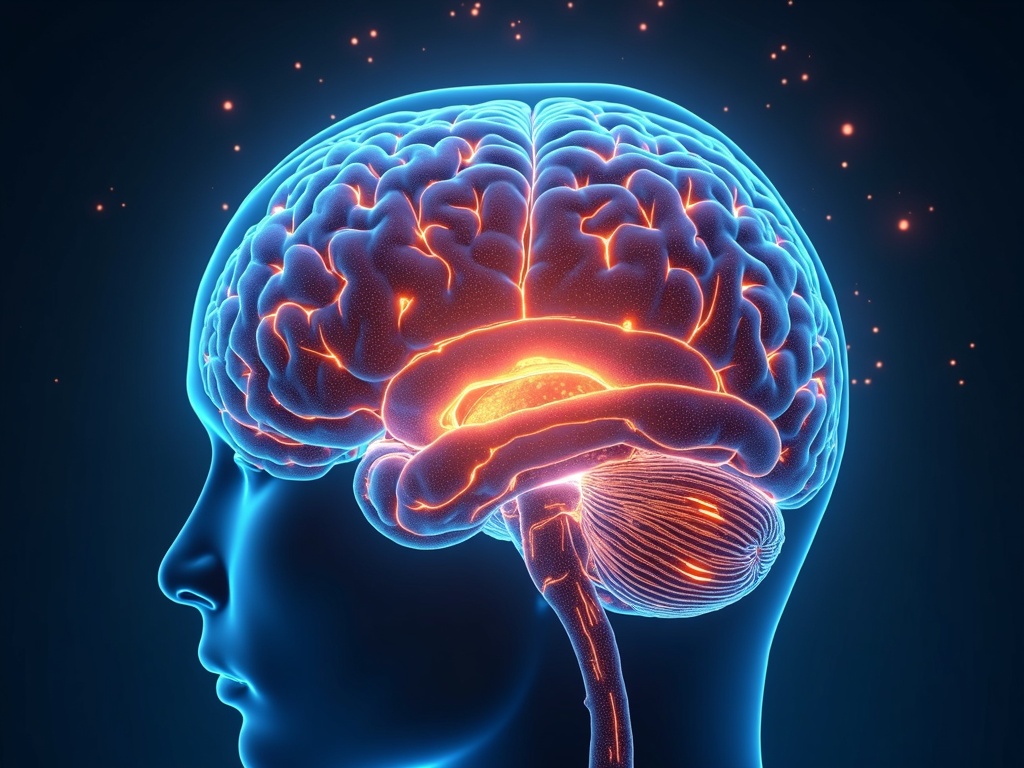Unlock Your Brain's Potential: The Omega-3 Advantage for Men
Imagine a life where mental clarity is the norm, not the exception. Where your memory feels sharp as a tack, and your mood is consistently balanced. While this might sound like a far-off dream, it's actually within reach, thanks to the powerful benefits of omega-3 fatty acids, particularly for men. Let's dive into how these essential nutrients can transform your brain function and overall well-being.
Why Omega-3s are Crucial for Brain Health
Omega-3 fatty acids are a type of polyunsaturated fat that are vital for numerous bodily functions, but they are particularly critical for brain health. The brain is composed of nearly 60% fat, and omega-3s, especially DHA (docosahexaenoic acid), are major structural components of brain cell membranes. These fats contribute to:
- Improved Cell Communication: Omega-3s help maintain the fluidity and flexibility of brain cell membranes, facilitating efficient communication between neurons. This is essential for cognitive processes like learning and memory.
- Reduced Inflammation: Chronic inflammation is detrimental to brain health and is linked to cognitive decline. Omega-3s possess anti-inflammatory properties that can help protect the brain from damage.
- Neuroprotection: Omega-3s can help protect brain cells from oxidative stress and age-related damage, promoting long-term brain health.
The Specific Omega-3 Benefits for Brain Function in Men
While omega-3s benefit everyone, men can experience unique advantages when they incorporate these essential fats into their diets.
Enhanced Cognitive Function
Studies have shown that omega-3 supplementation can improve various aspects of cognitive function in men, including:
- Memory: Omega-3s can enhance both short-term and long-term memory recall. This can translate to better performance at work and improved ability to remember important details.
- Focus and Attention: By reducing inflammation and optimizing neurotransmitter function, omega-3s can improve focus and attention span, leading to increased productivity and mental clarity.
- Processing Speed: Research suggests that omega-3s may speed up cognitive processing, enabling men to think more quickly and efficiently.
Mood Regulation and Mental Well-being
Omega-3s play a significant role in regulating mood and emotional stability. They influence the production and function of neurotransmitters like serotonin and dopamine, which are key players in mood control.
- Reduced Risk of Depression: Studies have found a correlation between omega-3 intake and a lower risk of depression in men. Omega-3s can help alleviate symptoms of sadness, hopelessness, and loss of interest.
- Anxiety Relief: Omega-3s may help reduce anxiety symptoms by modulating the body's stress response and promoting relaxation.
- Improved Emotional Resilience: By supporting healthy neurotransmitter function, omega-3s can improve emotional resilience and help men cope with stress more effectively.
Protection Against Age-Related Cognitive Decline
As men age, they become more susceptible to age-related cognitive decline and neurodegenerative diseases like Alzheimer's disease. Omega-3s offer a protective effect by:
- Reducing Amyloid-Beta Plaques: Amyloid-beta plaques are toxic protein deposits that accumulate in the brains of people with Alzheimer's disease. Omega-3s may help reduce the formation of these plaques.
- Improving Cerebral Blood Flow: Omega-3s promote healthy blood flow to the brain, ensuring that brain cells receive adequate oxygen and nutrients.
- Supporting Brain Cell Survival: Omega-3s can help protect brain cells from apoptosis (programmed cell death), preserving cognitive function as men age.
Optimal Omega-3 Sources for Men
To reap the full benefits of omega-3s, it's essential to incorporate them into your diet through food sources and/or supplements.
Dietary Sources:
**Fatty Fish:Salmon, mackerel, tuna, sardines, and herring are excellent sources of EPA (eicosapentaenoic acid) and DHA, the most beneficial types of omega-3s for brain health. Aim for at least two servings of fatty fish per week.
**Flaxseeds and Chia Seeds:These seeds are rich in ALA (alpha-linolenic acid), a precursor to EPA and DHA. However, the conversion of ALA to EPA and DHA is often inefficient, so it's best to combine these sources with fatty fish or supplements.
**Walnuts:Another plant-based source of ALA, walnuts offer a boost of omega-3s alongside other beneficial nutrients.
**Fortified Foods:Some foods, like eggs, milk, and yogurt, are fortified with omega-3s. Check the labels to ensure they contain EPA and DHA.
### Omega-3 Supplements:
**Fish Oil:Fish oil supplements are a popular and convenient way to increase omega-3 intake. Look for high-quality supplements that are third-party tested for purity and potency.
**Krill Oil:Krill oil is another marine-based source of omega-3s. Some studies suggest that krill oil may be more easily absorbed than fish oil.
**Algal Oil:Algal oil is a vegetarian and vegan-friendly source of DHA, derived from algae. It's an excellent option for those who don't consume fish.
Dosage Recommendations for Men
The optimal omega-3 dosage varies depending on individual needs and health conditions. However, a general recommendation for men is to aim for at least 1,000-2,000 mg of combined EPA and DHA per day. If you're taking fish oil supplements, be sure to follow the dosage instructions on the label. Consult with your doctor or a registered dietitian to determine the most appropriate dosage for you.
Potential Side Effects and Precautions
Omega-3s are generally safe for most people, but some potential side effects and precautions to be aware of:
**Gastrointestinal Issues:High doses of omega-3s may cause mild gastrointestinal issues, such as nausea, diarrhea, or bloating. Start with a lower dose and gradually increase it to minimize these effects.
**Blood Thinning:Omega-3s have blood-thinning properties, so if you're taking anticoagulant medications like warfarin, consult with your doctor before taking omega-3 supplements.
**Fish Allergies:If you have a fish allergy, avoid fish oil and krill oil supplements. Opt for algal oil instead.
**Quality Concerns:Choose high-quality omega-3 supplements from reputable brands that are third-party tested for purity and potency.
Lifestyle Factors to Complement Omega-3 Benefits
While omega-3s offer significant benefits for brain function, it's important to combine them with other healthy lifestyle habits to maximize their impact. Consider incorporating these practices into your daily routine:
**Regular Exercise:Physical activity improves blood flow to the brain, stimulates the growth of new brain cells, and enhances cognitive function.
**Healthy Diet:A balanced diet rich in fruits, vegetables, whole grains, and lean protein provides the brain with the nutrients it needs to thrive.
**Adequate Sleep:Sleep is essential for brain health and cognitive function. Aim for 7-8 hours of quality sleep each night.
**Stress Management:Chronic stress can damage the brain and impair cognitive function. Practice relaxation techniques like meditation, yoga, or deep breathing exercises to manage stress levels.
**Mental Stimulation:Engage in mentally stimulating activities like puzzles, reading, or learning new skills to keep your brain sharp and active.
Conclusion: Invest in Your Brain Health Today
Omega-3 fatty acids are powerful nutrients that can significantly enhance brain function and overall well-being for men. From improving memory and focus to regulating mood and protecting against age-related cognitive decline, the benefits are undeniable. By incorporating omega-3s into your diet and lifestyle, you can unlock your brain's full potential and experience a life of mental clarity, emotional stability, and lasting cognitive health. So, take the first step today and invest in your brain's future!

